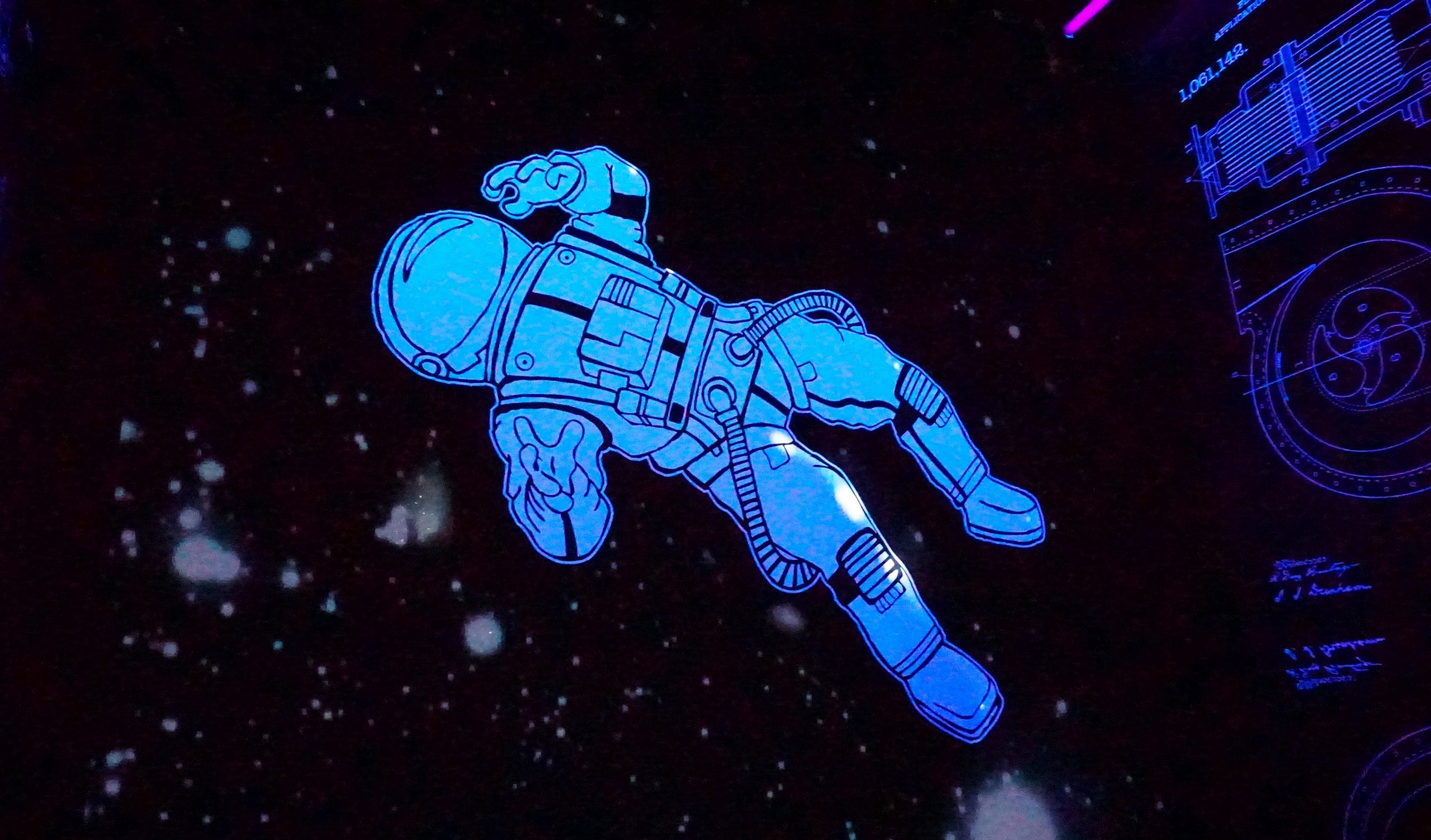
In many ways, dumping our stiffs in the frigid vacuum of space will not be a viable option.
In the current context of the explosion of space tourism, it seems obvious that more and more people will be led to visit the cosmos in the years to come. An obviously very exciting prospect, but which also has a much less rosy side of the coin: if more people go to visit space, that also means… that more of us will never come back.
This is the subject of a paper published by English professors Christopher Newman and Nick Caplman, who respectively teach legislation and medicine applied to space.
To build their reasoning, the two colleagues start from an observation that could not be more pragmatic. Traditionally, astronauts have always had to submit to a extremely rigorous training and at one very close medical supervision. These two elements alone made it possible toalmost certainly exclude the possibility of dying of natural causes in the middle of a mission.
But the profile of space travelers is changing; perfectly ordinary humans can now board a rocket, even if they are nearly a century old, as William Shatner showed us late last year.
We find ourselves with people who are very far from having the theoretical knowledge, the physical condition, the state of mind and the technical mastery of a real astronaut. Moreover, these civilian “astronauts” will not necessarily be subjected to the same medical examinations. In this context, the risk of natural death remains low, but it is no longer as negligible as in a strictly professional environment.
An ethical crossroads “incomfortable, but inevitable“
This is a problem that is still anecdotal today, but which will become more and more important as humanity undertakes longer and longer journeys. The two researchers therefore believe that it is becoming important to lay the foundations for a concrete procedure.
Indeed, death in space conceals a set of complex logistical, political and ethical issues. It starts with very concrete concerns, starting with the management of the corpse. Because in the case of a long-term mission, it would be impossible to repatriate the body to Earth within an acceptable period.
However, leaving a lifeless body floating in the cabin is obviously not conceivable. Admittedly, it would not decompose in the same way as on Earth because of the absence of external decomposing microorganisms. But it would still be necessary to take care of it quickly; otherwise, it is all the environment of other astronauts that could be contaminated . What to do in this case?
The preservation of the corpse, a multi-faceted problem
We can obviously consider getting rid of it from the body directly in space. This is the option chosen by the characters of Star Trek with the coffin of the beloved Spock. From a strictly functional point of view, this is certainly the most optimal approach, unless you go so far as to recycle the remains into useful resources…. But as the researchers point out, this approach becomes hardly acceptable as soon as the human factor is integrated into the equation.
Moreover, even if it sounds horrible formulated like this, the deceased would then become a space junk like any other. And this is a problem to which the agencies are very attentive because of the danger they represent. In orbit at several hundred thousand kilometers per hour, a human body accumulates aenough kinetic energy to shatter a ship on impact. It therefore represents a danger for manned missions and the scientific equipment already in place.
And in the setting of another planet, the body could represent a form of interplanetary biological contamination. And this is something that all agencies want to avoid at all costs; humanity has already proven that it has no equal in polluting its environment. No question of reproducing these errors on other planets.
This is also an undesirable solution humanly and medically speaking. In addition to preventing the family from reuniting with their loved one, this could deprive medicine of a valuable autopsy. Indeed, precisely determining the conditions of an astronaut’s death in space could bring important elements; they could then be used to improve the care of subsequent travellers.
The most obvious solution seems to be to build a morgue on board the ship or within a colony. But again, this solution has drawbacks. In terms of engineering, the mass of a ship and the space available are two limiting factors; in space, the smallest centimeter and the smallest kilogram become extremely precious. We will therefore have to make clear choices and assume them.\
The importance of anticipation
The decision to keep or dispose of the bodies therefore goes beyond the simple ethical framework. It can have a significant impact on the viability of the mission. The two researchers therefore explain that we must take up this questioning now. This is important so as not to leave room for improvisation when the time comes.
They believe that a clear procedure must be defined to determine the cause of death. And, above all, they insist on the urgency of determining the legal and administrative responsibilities of the various actors involved. This applies to crew, governments, space agencies and manufacturers alike. This is an already complex question in normal times, but which could become downright insoluble in the case of a contentious death.
Overall, this very interesting publication confronts us with a whole range of questions that are certainly uncomfortable, but which directly concern the future of our civilization, as the researchers explain in their conclusion.
“The ethical issues surrounding death in space transcend all anthropological, legal and cultural boundaries. It’s an idea that can be uncomfortable to contemplate, but it’s one of the many discussions we will need to have as a species if we are to conquer space.”.